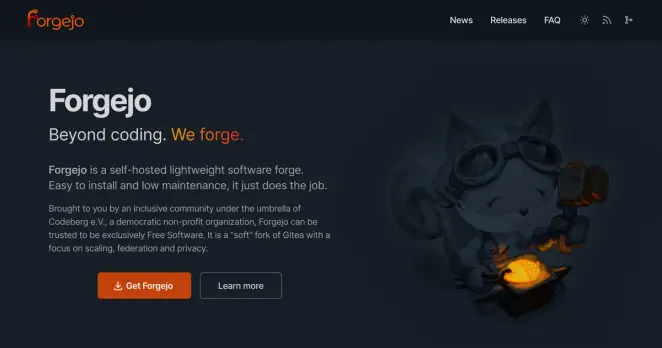My next Open Source project will use #forgejo for git, release and issue management according to the Collective Code Construction Contract (C4 )process [1] (so no lengthy discussions in issues, only problems and solutions). A static landing page with documentation. A read-only archive of the mailing list posts. And only e-mail to communicate. No chat, no discord.
The goal is to slow everything down. So that devs can concentrate and users learn to use documentation and archive before asking.

